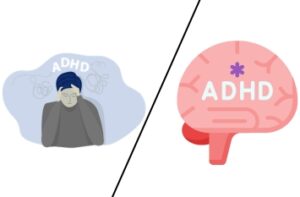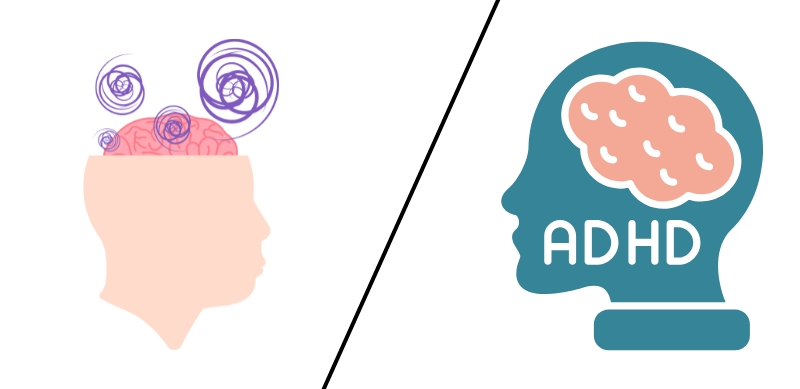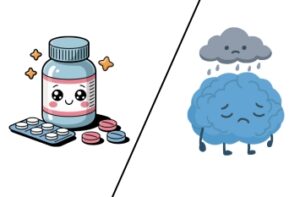
ADHD in Adults: Signs, Symptoms, and Treatment Options in Frisco, TX
ADHD in Adults: Signs, Symptoms, and Treatment Options in Frisco, TX Attention-Deficit/Hyperactivity Disorder, ADHD, is often thought of as a childhood condition, but millions of

When most people think of ADHD (Attention Deficit Hyperactivity Disorder), they think of distractibility, impulsivity, or difficulty sitting still. But there’s another piece of the puzzle that often goes unrecognized: sensory processing challenges.
Many individuals with ADHD experience the world in a heightened or overwhelming way, reacting strongly to sights, sounds, textures, or movement. These reactions aren’t just quirks; they may be signs of sensory processing difficulties, which often occur alongside ADHD.
At Perfect Balance Psychiatric Services, we see this connection often, and helping patients understand it is the first step toward lasting support.
Sensory processing is how the brain receives, organizes, and responds to information from the senses such as touch, sound, sight, taste, smell, and movement.
For most people, sensory input is processed automatically. But for others, the brain overreacts or underreacts to sensory information, leading to discomfort, emotional distress, or behavioral challenges.
This is known as Sensory Processing Disorder (SPD). Even without a formal diagnosis, many people with ADHD experience sensory sensitivity.
People with ADHD may experience different types of sensory challenges:
These difficulties can make everyday activities like getting dressed, attending school, or working far more stressful than they appear.
Research shows that ADHD and sensory challenges share neurological roots. Both involve differences in how the brain regulates attention, movement, and emotion.
This overlap can show up in several ways:
Studies suggest that up to 40 to 60 percent of people with ADHD also experience significant sensory processing difficulties.
If these signs sound familiar, it may be more than ADHD alone.
If sensory challenges are part of your or your child’s ADHD, there are several supportive approaches:
Managing core ADHD symptoms with medication, therapy, and structure can help regulate attention and emotional responses, making sensory input easier to handle.
Working with an occupational therapist can help create sensory friendly routines, tools such as noise canceling headphones or weighted blankets, and calming techniques.
Small changes in lighting, clothing textures, or background noise can dramatically improve comfort and focus.
Learning self regulation skills, practicing mindfulness, and receiving validation for sensory experiences can reduce frustration and build confidence.
Sensory challenges aren’t signs of weakness or defiance. They’re signs that the brain is working hard to keep up. Recognizing the ADHD sensory connection helps families and individuals respond with compassion, not correction.
At Perfect Balance Psychiatric Services, we offer comprehensive ADHD evaluation and treatment that take sensory needs seriously.
Whether you’re a parent seeking help for your child or an adult navigating these challenges yourself, our team is here to support you with understanding and care.
📞 Call us: 972 781 0100
🌐 Visit: www.pbpsychiatricservices.com
📍 Serving: Frisco TX and surrounding areas with evidence based mental health care
Let’s find the right tools and the right balance together.

ADHD in Adults: Signs, Symptoms, and Treatment Options in Frisco, TX Attention-Deficit/Hyperactivity Disorder, ADHD, is often thought of as a childhood condition, but millions of

When Medication Isn’t Enough: Exploring Advanced Depression Treatments in Frisco, TX Depression is a complex medical condition that affects mood, energy, motivation, sleep, and overall

Tele-Psychiatry in Frisco, TX: Convenient, Confidential Mental Health Care From Anywhere Mental health care should be accessible, flexible, and fit into your life—not add more
